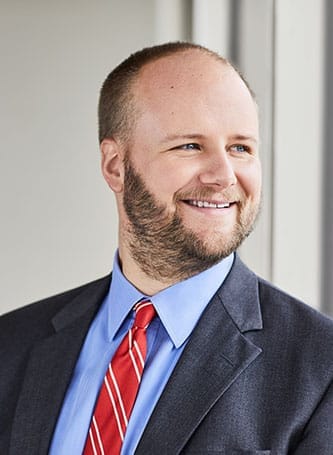Fitch attorney Jared Hubbard was at the Supreme Court this past November on behalf of a group of international law professors-including George Bermann of Columbia Law School and David Stewart of Georgetown Law School-who appeared as amici curiae (friends of the court) in the case of Sudan v. Harrison, Dkt. 16-1094.
The case involves how foreign states may be served under the Foreign Sovereign Immunities Act (“FSIA”). The plaintiffs in Sudan v. Harrison addressed their complaint and summons to the head of the ministry of foreign affairs at the Sudanese embassy. When Sudan failed to appear, the district court entered a $314 million default judgment against Sudan for claims relating to the bombing of the USS Cole in Yemen in October of 2000. When the plaintiffs tried to collect in New York, Sudan appeared and challenged service of process, asserting that the plaintiffs should have mailed service to the “head of the ministry of foreign affairs” at the Ministry of Foreign Affairs and not at the country’s embassy in the United States, as service on an embassy violates the Vienna Convention on Diplomatic Relations (“VCDR”).
Working on behalf of the international law professors, Fitch briefed the Court on the proper application of international law and the VCDR. In particular, in adopting the FSIA, Congress explicitly avoided allowing service to be mailed to embassies so as to avoid a conflict with the VCDR. Several other amici, including the governments of the United States, Saudi Arabia, the United Arab Emirates, and Libya, also supported Sudan’s position that service of process cannot properly be made on an embassy.
Oral argument was heard in the case on November 7, 2018. SCOTUSblog features a write-up of the arguments. Attorney Hubbard was present, and wrote his own analysis, which appeared in the popular Letters Blogatory. The international legal community and the United States government has largely come in on one side of this case, while the plaintiffs rely more on the arguments that embassies are a more practical way to reach foreign governments than international mailings, that Sudan had actual notice of the case, and that state sponsors of terrorism should be held to account.
The Supreme Court will now consider the important international issues involved, and ultimately determine whether to allow a default judgment to stand against a foreign sovereign based upon service to an embassy. A decision to allow such service would make service somewhat simpler on foreign sovereigns but would place the United States significantly out of step with both longstanding principles of diplomatic relations and how service is accomplished in every other nation. Further, as the United States observed during oral argument, if other nations were to reciprocate, the United States-which is a frequent party in foreign lawsuits-could have to deal with service and potential defaults in its many embassies and consulates around the world.
We at Fitch will be closely monitoring this case,and we expect a decision from the Supreme Court early next year.
